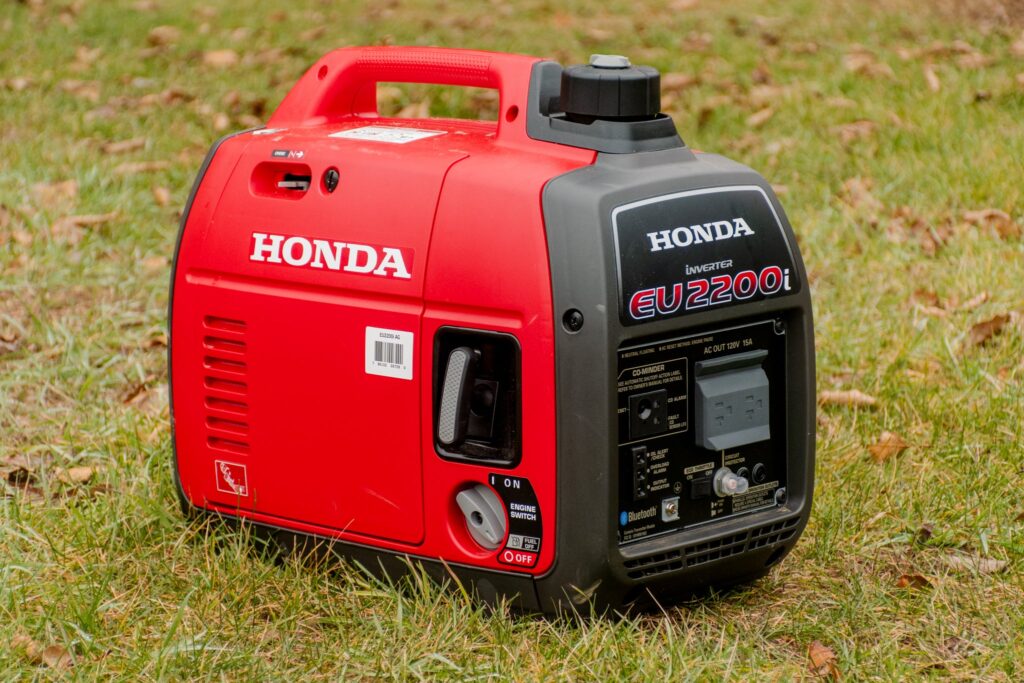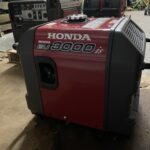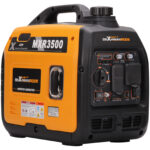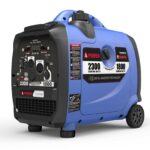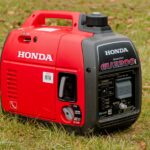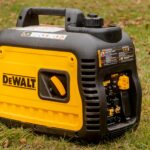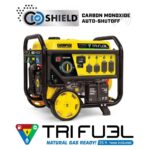A portable generator is an incredibly convenient and reliable source of power for any occasion. It is a great choice for any situation where access to an electrical outlet is not available or when the need for a backup power source is necessary. With a portable generator, you can easily power electronics, lights, and more. Whether you are camping, tailgating, or taking power to a remote location, a portable generator can provide the power you need in a reliable and efficient manner.
Types of Portable Generators
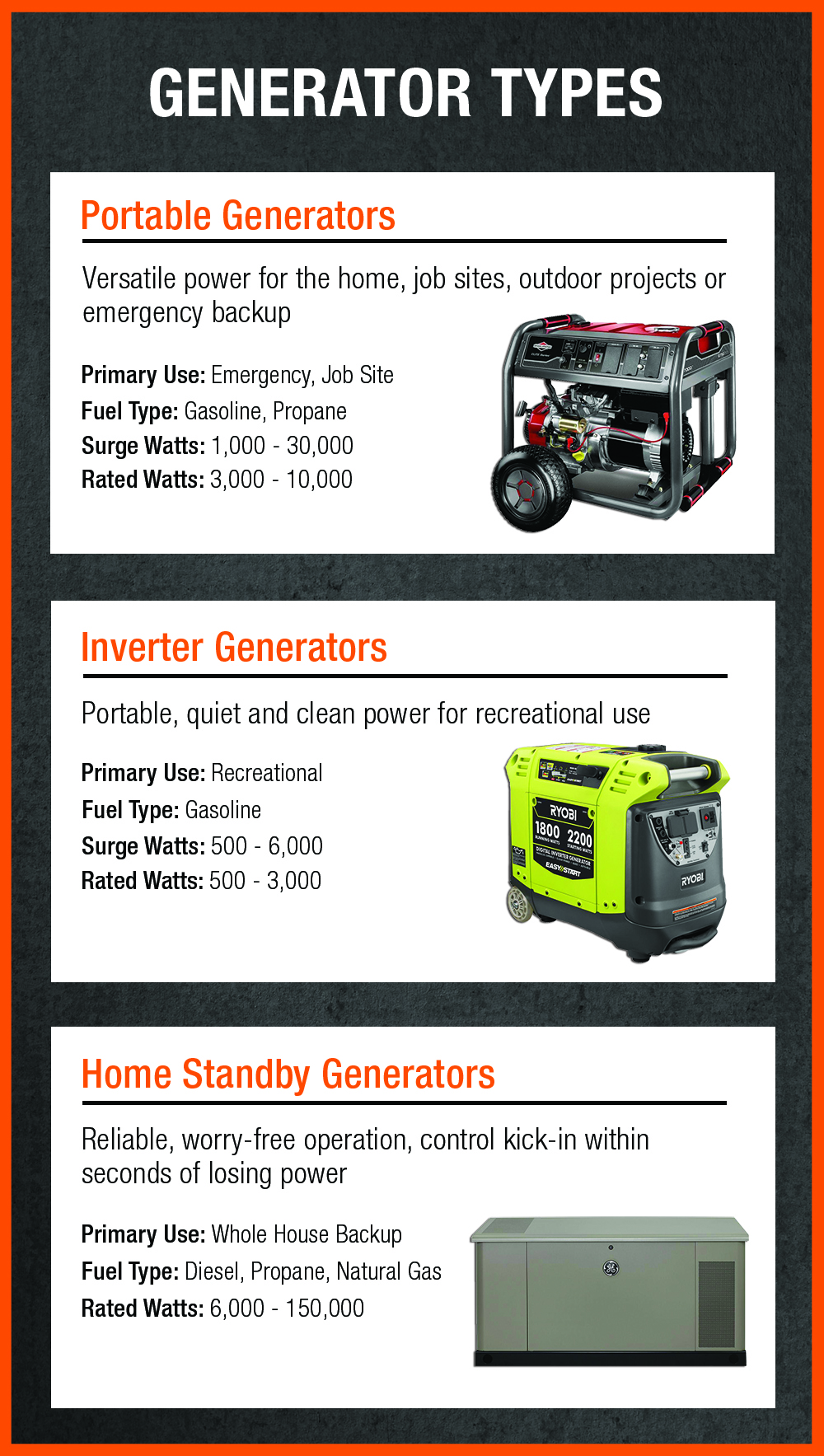
| Type | Power Output | Applications |
|---|---|---|
| Inverter Generator | 1,000 – 4,000 Watts | RVs, camping, tailgating, job sites |
| Dual Fuel Generator | 3,000 – 8,000 Watts | Emergency power, jobsites, recreational activities |
| Home Standby Generator | 7,000 – 20,000 Watts | Whole-house backup power |
Portable generators are a great way to remain powered up even when you’re not connected to the grid. Whether you’re camping, tailgating, or on the job site, you can find a suitable generator to fit your needs.
Inverter generators are the most popular type of portable generator due to their lightweight and efficient design. They come in power outputs ranging from 1,000 to 4,000 watts and are ideal for recreational activities such as camping and tailgating.
Dual fuel generators are another popular choice, as they provide increased power output, ranging from 3,000 to 8,000 watts. These generators can run on either gasoline or propane and are best suited for emergency power and job sites.
For larger applications, such as whole-house backup power, home standby generators are the best option. These generators range in power output from 7,000 to 20,000 watts and are designed to be permanently installed.
Advantages of Portable Generators
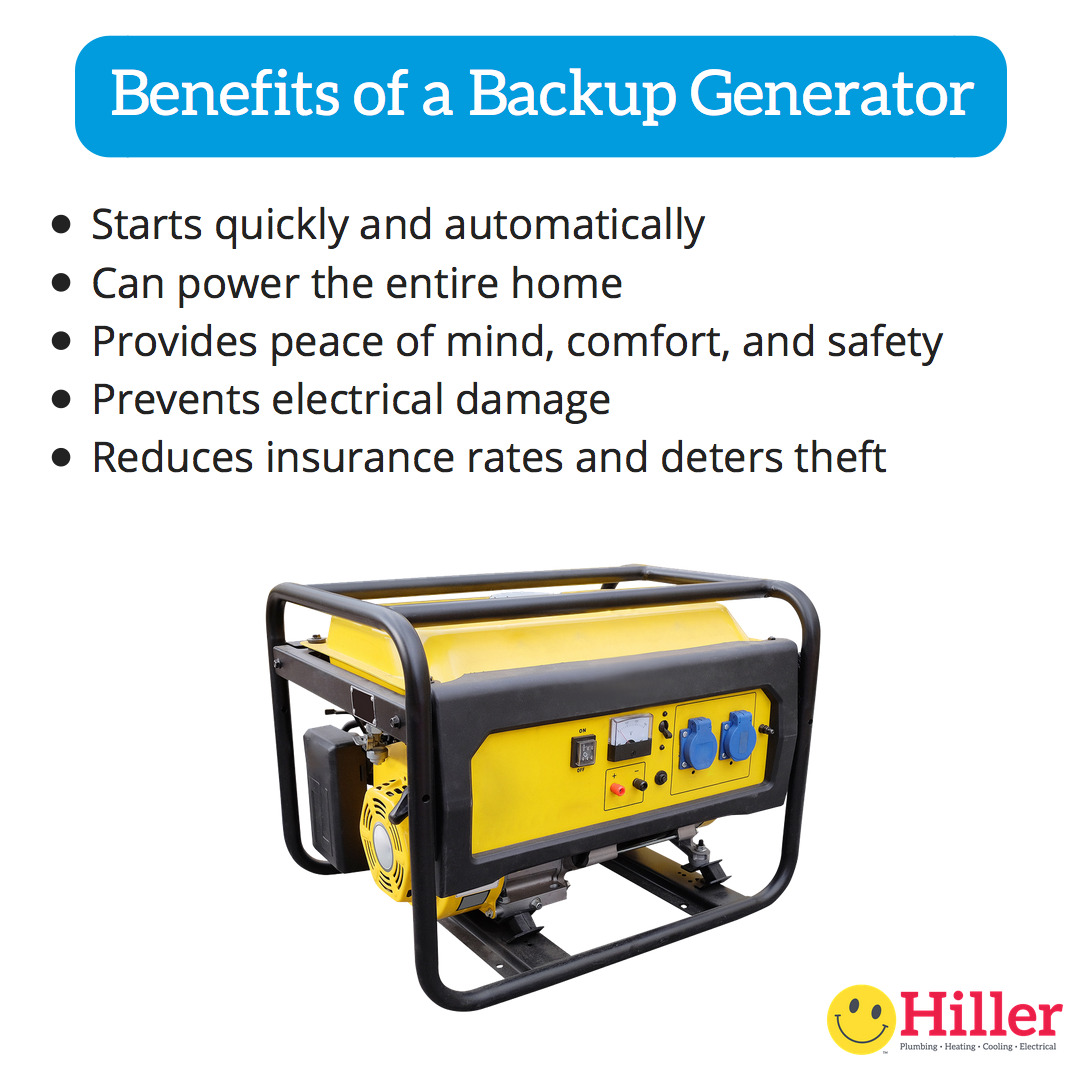
| Advantage | Description |
|---|---|
| Affordability | Portable generators are typically more affordable than larger standby generators. |
| Flexibility | Portable generators are highly flexible, as they can be moved to any location. |
| Ease of Use | Portable generators are simple to operate, and require minimal setup. |
| Convenience | Portable generators can be used to provide power in remote locations, such as camping sites. |
| Safety | Portable generators are generally safer to use than larger stationary models, as they are less likely to cause electric surges. |
Portable generators have many advantages over larger stationary models. They are generally more affordable, flexible, and easier to use. They can be moved to any location, making them a great choice for providing power in remote areas, such as camping sites. In addition, they are considered safer than stationary models, as they are less likely to cause electric surges.
Disadvantages of Portable Generators
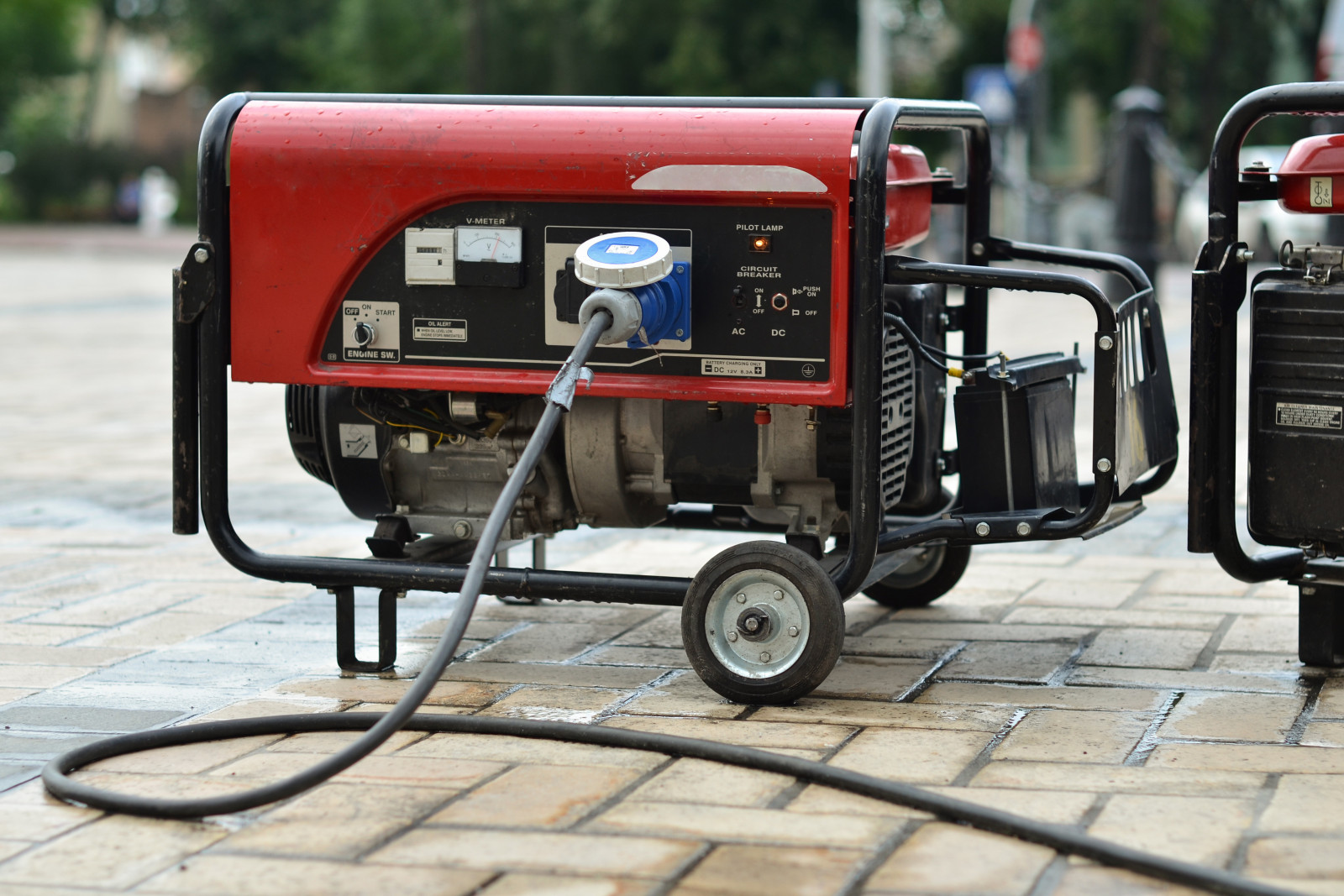
- Noise: Portable generators can be quite loud and can cause disruption to your environment.
- Fuel: Portable generators require fuel and the fuel type is generally gasoline, diesel, or propane.
- Pollution: Portable generators produce emissions that are not good for the environment.
- Cost: Portable generators can be expensive and may not be within everyone’s budget.
- Maintenance: Portable generators require regular maintenance to keep them running properly.
- Safety: Portable generators can be dangerous if not used properly or if not maintained properly.
- Weight: Portable generators can be heavy, making them difficult to transport.
Popular Uses for Portable Generators
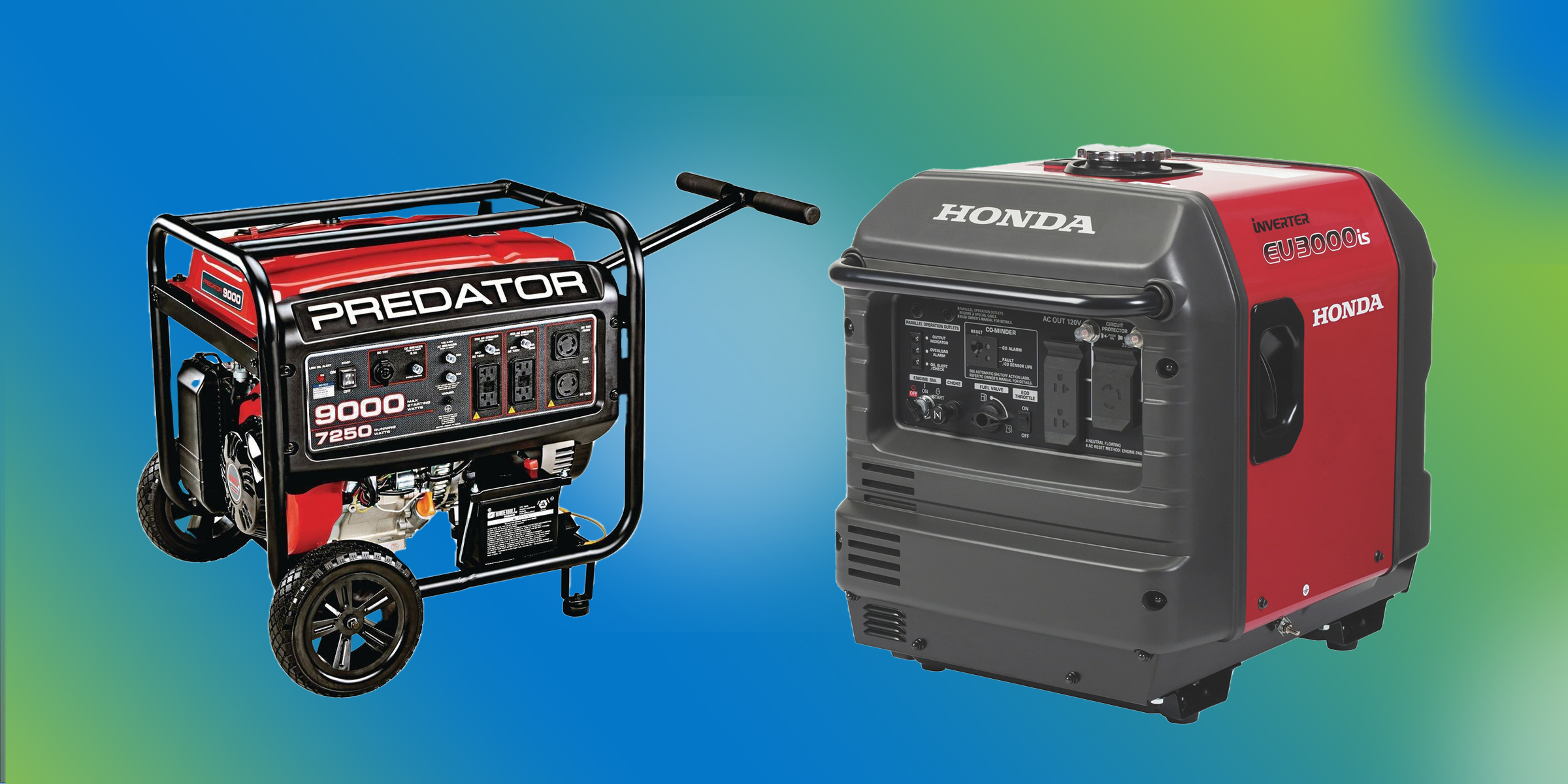
Portable generators are a great way to provide power when and where you need it. They are perfect for off-grid living, camping, and as a backup power source during emergencies. Here are some of the most popular uses for portable generators:
- Camping – Portable generators are great for camping trips. They can provide the power you need to keep your devices and appliances running, such as heaters, air conditioners, and refrigerators.
- Emergency power – Portable generators are a great choice for emergency power during power outages. They can provide enough electricity to power some essential devices and appliances, such as lights and refrigerators.
- Construction sites – Portable generators are ideal for construction sites, as they can provide power for a variety of tools and equipment. They are also great for powering lights at night.
- Home backup – Portable generators are a great way to provide backup power during outages. They can provide enough electricity to power essential devices and appliances, such as lights and refrigerators.
- Outdoor events – Portable generators are great for outdoor events, such as weddings and festivals. They can provide the power you need to keep your devices and appliances running, such as lights and sound systems.
- Tailgating – Portable generators are great for tailgating. They can provide the power you need to keep your devices and appliances running, such as TVs and sound systems.
Buying a Portable Generator
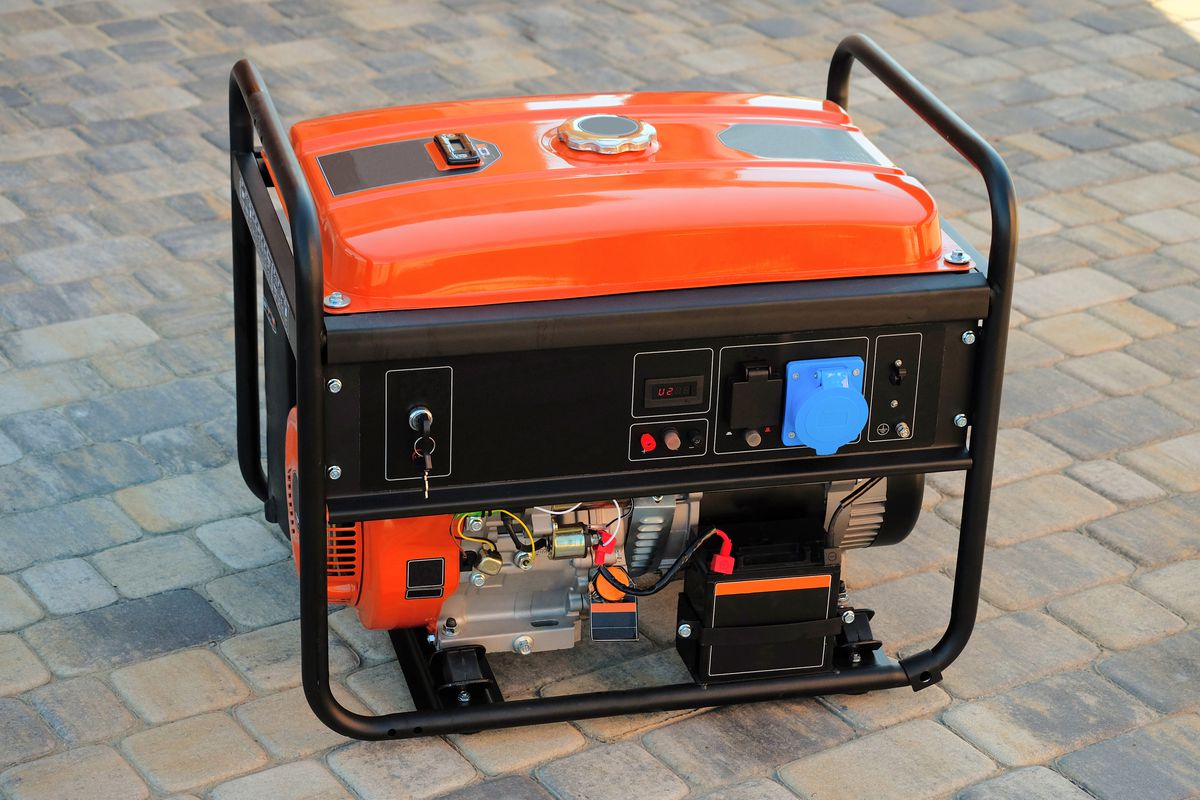
When buying a portable generator, it is essential to consider the power output, type, size, and weight. The power output is the most important factor, and should match the needs of the appliances to be powered. For example, a generator that produces 1000 watts is suitable for powering a small appliance such as a laptop, whereas a generator that produces 5000 watts is more suitable for powering a refrigerator.
The type of generator should also be considered. There are two main types of portable generators: gasoline and diesel. Gasoline generators are lightweight and easy to store, but require regular maintenance and are prone to fuel theft. Diesel generators are more expensive, but are more reliable and require less maintenance.
Size and weight are other important factors. If the generator is to be moved around, it must be light enough to transport. If the generator is to be stored, the size should be large enough to fit the desired space.
Finally, it is important to read reviews and compare prices when buying a portable generator. Prices can vary greatly, so it is important to shop around. Reviews can help to identify the best quality and value for money.
Maintenance and Safety
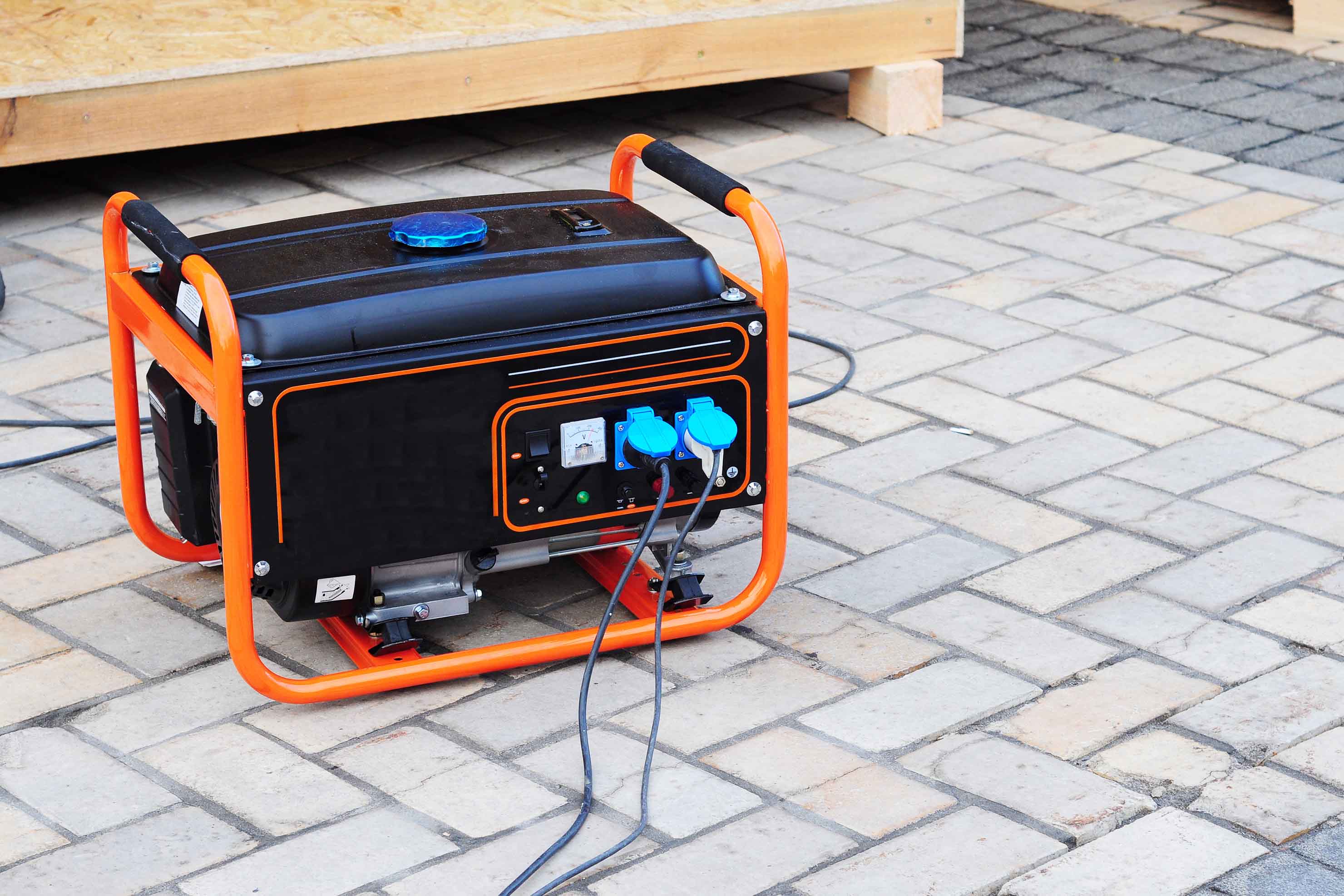
- Check the fuel tank and oil levels regularly.
- Check the engine and exhaust system for any damage or wear.
- Replace the spark plug, air filter, and oil filter as needed.
- Keep the generator clean and free from debris.
- Make sure the generator is securely fastened to prevent it from tipping over.
- When refueling, make sure the engine is off and the fuel cap is securely tightened.
- Never operate the generator indoors or in an enclosed space.
- Make sure the generator is in a well-ventilated area when in use.
- Never overload the generator with more than its rated capacity.
- Turn off the generator and allow it to cool down before refuelling.
- Wear protective gear such as gloves and safety glasses when operating the generator.
- Keep a fire extinguisher or water hose nearby in case of an emergency.
Different Types of Fuel
Portable generators are typically powered by one of three main fuel sources: gasoline, propane, and diesel. Each type of fuel has its own benefits and drawbacks, so it is important to understand the differences between them before selecting a portable generator.
Gasoline is the most common type of fuel used in portable generators. It is widely available, easy to find, and generally the least expensive option. However, gasoline can be highly combustible and must be handled with care. It also does not have a very long shelf life, so it must be stored and used within a short amount of time.
Propane is also a popular fuel choice for portable generators. It is non-toxic, easy to store, and has a longer shelf life than gasoline. Propane also burns cleanly, making it a more environmentally friendly option. The biggest drawback of propane is that it is more expensive than gasoline and can be difficult to source in some areas.
Diesel is the least common type of fuel used in portable generators, but it offers some distinct advantages over gasoline and propane. Diesel is more energy-dense than either fuel, meaning it can power a generator for longer on a single tank of fuel. Diesel is also more efficient and has a longer shelf life than gasoline. The main disadvantage of diesel is that it can be more expensive than gasoline and propane.
Troubleshooting
| Problem | Possible Cause | Solution |
|---|---|---|
| Generator won’t start | Low fuel level, Out of oil, Dirty air filter | Fill fuel tank, Add oil, Clean or replace the air filter |
| Generator runs rough | Carburetor needs adjustment, Dirty spark plug | Adjust carburetor, Clean or replace spark plug |
| Generator does not produce power | Defective voltage regulator, Poor electrical connection | Replace voltage regulator, Inspect and repair connections |
Frequently Asked Questions
What are the advantages of using a compact power generator?
Compact power generators offer a range of advantages, such as portability, reduced noise and fuel efficiency. They are smaller in size and weight than other generators and can be easily transported for use in areas with limited power supply. They are also designed to be quieter than larger generators, allowing for greater versatility and convenience. Furthermore, they generally use less fuel than larger units, making them more cost-effective and environmentally friendly.
What are the benefits of owning a small portable power generator?
A portable generator offers a variety of benefits, such as providing an independent source of power, allowing access to electricity in areas without reliable power, and providing a backup power supply in case of an emergency. Portable generators are also easy to transport, making them ideal for camping, tailgating, and other outdoor activities. They are also usually more affordable than stationary models. Moreover, they come with various safety features, such as GFCI outlets, low oil shutoff, and spark arrestors.
How does a Portable Electric Power Generator Help Provide Energy?
A portable electric power generator can provide energy to a variety of locations. It is a self-contained unit that includes a motor and an alternator that produces electricity. The generator can be used to power a variety of electrical appliances and tools, such as TVs, computers, lights, and power tools. It can also be used to provide energy for off-grid locations, such as camping sites, remote cabins, and boats. The generator is powered by gasoline, diesel, or propane, and can be used as a backup power source in case of an emergency.
What Makes a Portable Energy Generator a Reliable Source of Power?
Portable energy generators are designed to be reliable and efficient sources of power. They are powered by gasoline, diesel, or propane, and are equipped with a variety of safety features, such as surge protection and overload protection. Generators are also designed with noise reduction technology that keeps the sound level to a minimum, allowing them to be used in residential areas without disturbing the peace. Additionally, they come with a variety of outlets to accommodate different types of electrical equipment. Finally, they are relatively easy to maintain and are designed to run for extended periods of time.
What are the features of a portable electricity generator?
A portable electricity generator is a device that produces electrical energy and is often used in homes, businesses, and recreational activities. Portable generators are lightweight, easy to move, and typically powered by gasoline, diesel, or propane. They feature low- and high-voltage outlets for powering a variety of equipment, and many can be used as a backup power source during an outage. Some portable generators also boast features such as fuel shutoff and overload protection, to ensure safe and proper operation.
Conclusion
A portable generator is a great way to provide a reliable and convenient source of power for any occasion. It is a cost-effective solution that offers a range of advantages over traditional sources of power. With its portability and ease of use, it is a great option for those who need to be able to access power on the go. Furthermore, with its wide range of features and capabilities, a portable generator is an ideal choice for those who need a reliable source of power.
